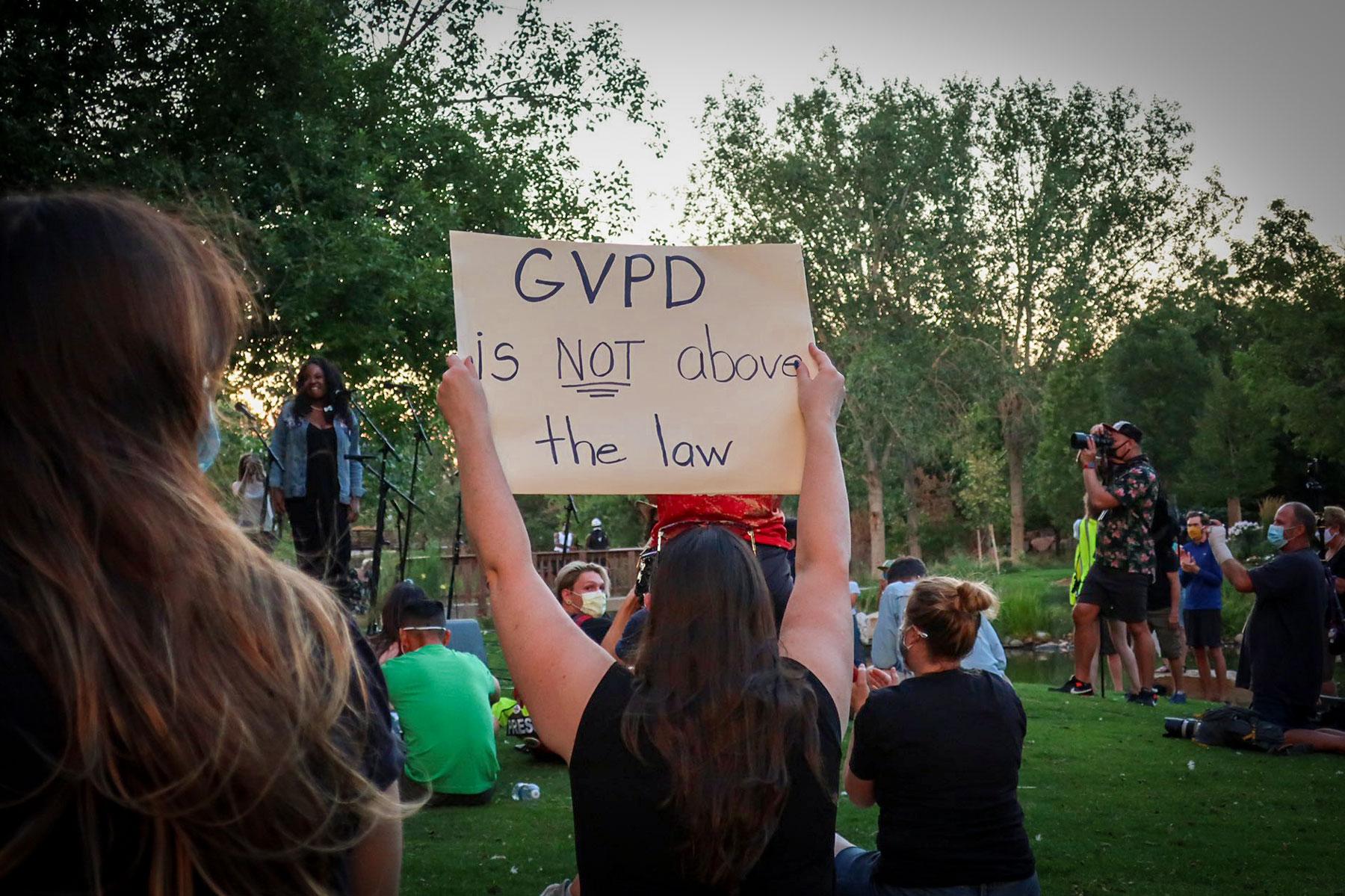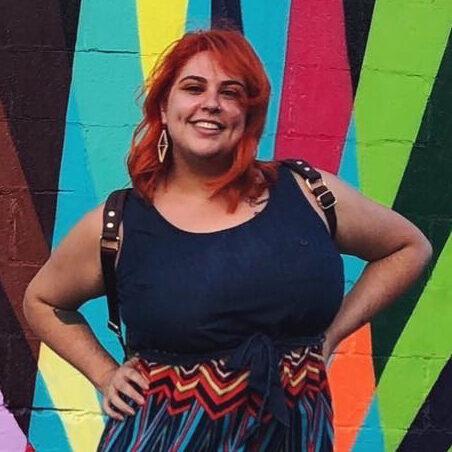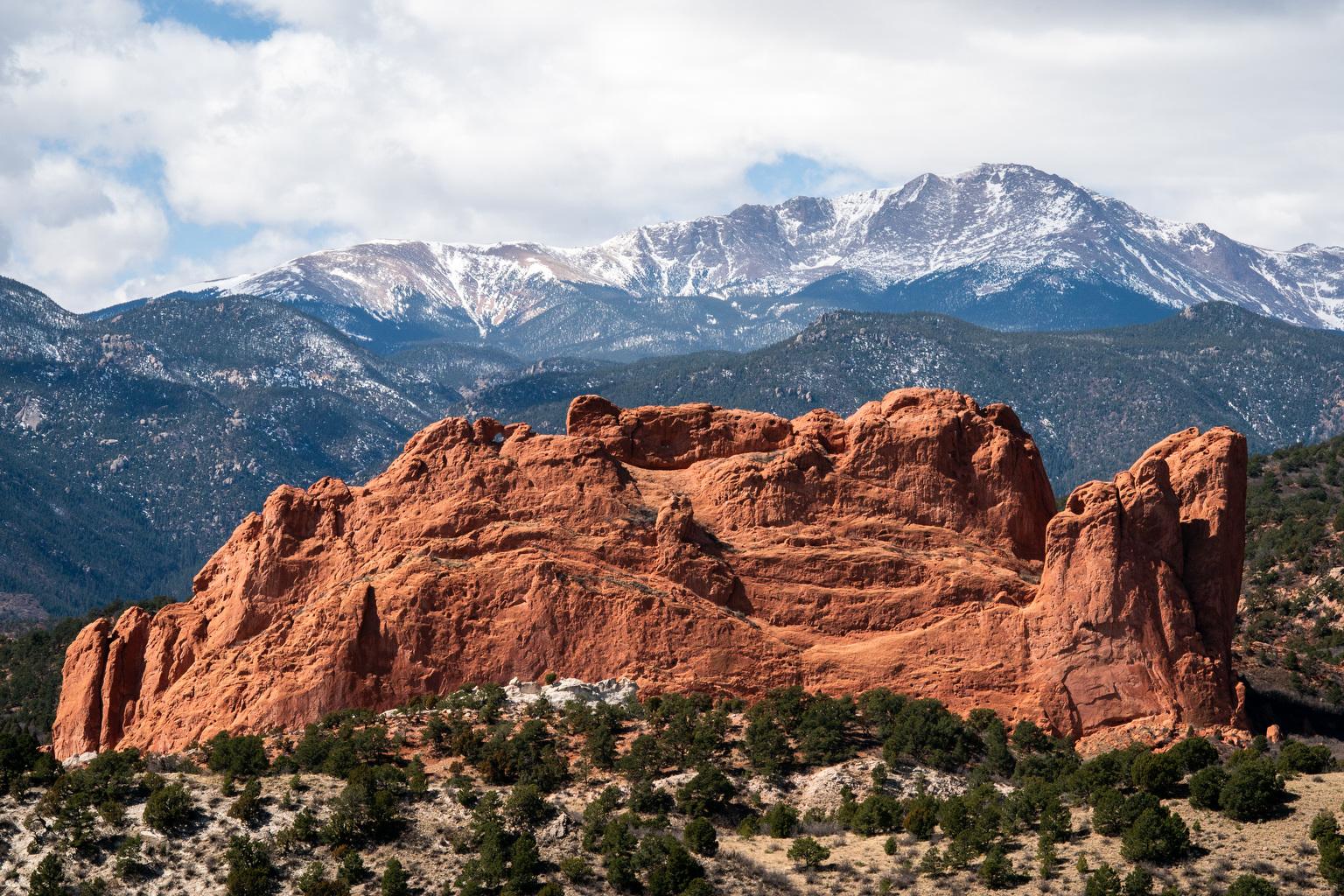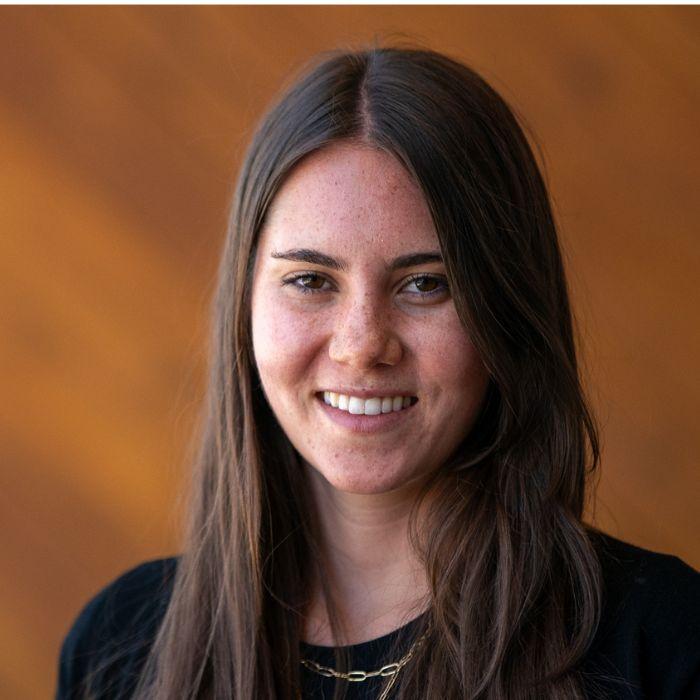
Two weeks after its city council voted unanimously to defy a statewide police accountability law, the Denver suburb of Greenwood Village drew protests on Monday evening.
The protest, called #LiveMusicForBlackLives, started outside Greenwood Village’s city hall. Musicians like Nathaniel Rateliff & the Night Sweats, The Lumineers’ frontman Wesley Schultz and rap-rock band Flobots performed before hundreds marched through the city. The musicians eventually joined the march.
Under the new law, signed by Gov. Jared Polis in June, officers can be held personally liable for up to $25,000 in civil judgments if they act in “bad faith.”
Greenwood Village passed a resolution saying it would defend and protect police officers in those cases — even though the freshly signed state law specifically prohibits officers’ employers, cities and counties from doing so.
The March
Before any marching began, the three musical acts played a couple of songs. At around 9 p.m., about 200 people took to the streets, circling a large block encompassing city hall and the police department.
Among them was Lerea Edwards, who was part of a singing trio of Black women called Spirit of Grace. They sang on their own and as backup for each of the musicians, and later marched along.
Edwards held a megaphone and chanted things like, “No justice, no peace,” as well as the names of George Floyd, Breonna Taylor and Elijah McClain — all three Black people who were killed by police. McClain lived and was killed in Aurora.
A quick pause in the march. Now they’re chanting George Floyd, Breonna Taylor and Elijah McClain’s names. pic.twitter.com/bwaQzAVht8
— May Ortega (@MayVOrtega) July 21, 2020
Edwards said she’s glad people are calling for the Greenwood Village city council to rescind its decision, which she said is like putting the police above the law.
“I am frustrated and energized at the same time. I don’t really understand what would make somebody say, ‘No, they should be allowed to be racist,’” Edwards said, her fellow Spirit of Grace members beside her.
Edwards, who lives in Denver, said that if the city truly trusts its police officers, it would let the statewide accountability law apply to them because the city wouldn’t have anything to worry about.
“I hope that people will see that it’s not somebody trying to attack good-meaning officers. The good officers won’t have a problem, right?” she asked. “No one is trying to attack your officers or get rid of your police force. We just want to say, ‘Hey, if somebody does something wrong, they should be held accountable.’”
As Edwards spoke, the city councilors were in the city hall for a regularly scheduled meeting.
The crowd was led by Tay Anderson, an elected member of the Denver Board of Education. Other elected state officials, like Rep. Leslie Herod and Sen. Jeff Bridges, joined along. Not far behind Anderson, Alex Zarnikow marched with her hands up. She’s been to other protests in support of Black Lives Matter and said she’s seeing progress.
“They’re already making changes in the law and I’m just hoping that continues,” Zarnikow said. “And obviously the ideal here is equality.”
And when it comes to Greenwood Village’s vote to exempt its police from the statewide accountability law, she said that needs to change too.
“It makes no sense, and there’s no justification for it.”
Musicians unite
Rateliff and Schultz each wrote open letters to the Greenwood Village city council, canceling future performances at Fiddler’s Green Amphitheatre until the city rescinds its vote. Both letters say the concert venue is one of Greenwood Village’s largest sources of tax revenue.
“Artists and fans should not be forced to financially support a city government that has established such racist policies to perform in Colorado or see their favorite artists perform locally,” the letters said.
Rateliff's grant-writing organization, The Marigold Project, helped organize the event. Kari Nott, the foundation’s executive director, said police accountability is important.
"What basically feels like a preemptive 'Don't worry about it, we've got your back if anything does come up,' we're concerned about what that environment might produce,” Nott said.
Gov. Jared Polis and state Attorney General Phil Weiser spoke out against the city council’s action shortly after it happened, saying they expected local cities and counties to follow state law.
“This is the law in which all of our police departments and sheriff’s departments operate,” Polis said in response to a question about the Greenwood Village resolution. “We all function under the laws of Colorado, including the changes to civil liability … I’m confident that communities across our state will continue to follow the law.”
Weiser, in a statement, encouraged local governments to implement the state law “as envisioned” and find “appropriate ways to demonstrate their support and appreciation for responsible law enforcement officers.”
“If they decline to do so,” Weiser said. “I expect the legislature will take action in January to address this issue.”








